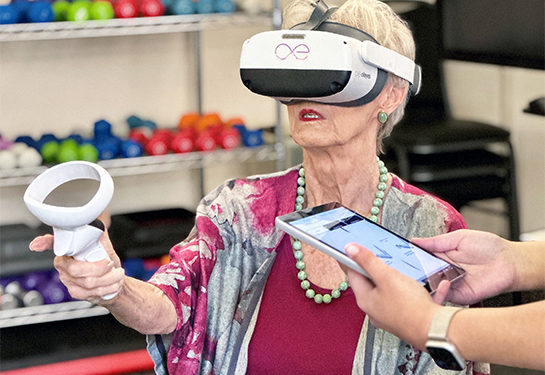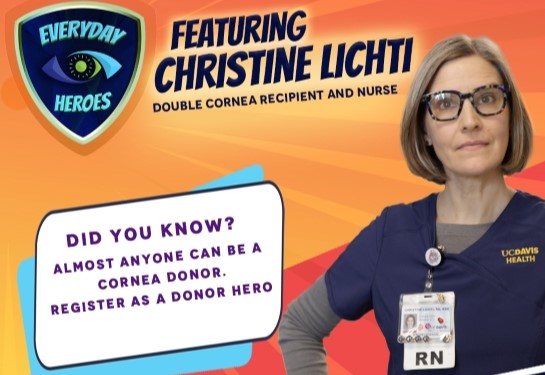Are over-the-counter eye drops safe?
An expert explains why there have been so many recalls this year and how to pick safe eye drops
UPDATE JAN. 31, 2024: The FDA is warning consumers not to purchase or use South Moon, Rebright or FivFivGo eye drops because of the risk of eye infection. These “copycat” eye drops resemble Bausch + Lomb’s Lumify brand eye drops. Read the FDA announcement.
The Food and Drug Administration (FDA) recalled dozens of over-the-counter lubricating eye drops and artificial tears in 2023 due to contamination and unsafe manufacturing practices.
The recalls began in February, when three brands were withdrawn, including one linked to serious infections, vision loss and four deaths. Additional recalls in August, October and November left consumers confused about whether over-the-counter eye drops — which are used to treat conditions like dry eyes — are safe to use.
Gary D. Novack, a clinical professor in the UC Davis Health Department of Ophthalmology and Vision Sciences, explains why there have been so many eye drop recalls this year and how people can pick safe products.
Q: Is it safe to use over-the-counter eye drops?
A: If an eye drop has been recalled, it should no longer be on the shelf. So, when you go to a drugstore, pharmacy or superstore, all the eye drops available for purchase should be safe. People may need to be more cautious if buying online, but the recalled products should have also been removed from online stores.
One thing to note is that most of the recalled eye drops this year are names that aren't very familiar. They tended to be store brands and little-known brand names.
To date, none of the recalled eye drops came from major ophthalmic pharmaceutical firms. These include Alcon, which makes Systane; Bausch and Lomb, which makes SootheXP; Allergan, which makes Refresh; and Johnson & Johnson, which makes Blink. Some people may be more comfortable sticking with those brands.
Another way to ensure safety is to make sure that the eye drops have not expired.
Q: Why have there been so many eye drop recalls this year?
A: There are recalls from the FDA and manufacturers all the time — it’s part of the quality-control process. But this year, we've seen an especially large number of recalls in ophthalmologic products. Now that the public health emergency phase of the pandemic is over, the FDA is doing more inspections, and they are finding a number of issues at manufacturing plants.
Manufacturing products like eye drops is especially an issue because they have to be sterile, free from germs and contamination, and stable, meaning they retain their properties over time. It's also important that the bottles in which these eye drops are placed are also sterile or, in some cases, have preservatives. That's been an issue for several products this year.
Q: Were prescription eye drops part of the recalls?
A: No prescription eye drops have been recalled this year. Prescription eye drops can include antibiotics for some types of infections, steroid drops to treat inflammation and medication to treat glaucoma. People should feel very confident using their prescription eye drops as prescribed by their eye care specialist and filled by a pharmacy. To date, the recalled drops have all been over-the-counter eye drops.
Q: What should people do if they have eye drops they purchased a while ago?
A: To find out if a product has been recalled, people can check with the pharmacy or store where they purchased the products, contact the manufacturer or check the FDA website. They should also check the expiration date and throw away any expired products. A cautious patient might discard all those eye drops and buy new products, which should not have been subjected to the recall.
Q: Are infections from eye drops common?
A: Infections from eye drops are very rare. The pharmaceutical industry goes to a lot of effort to make eye drops that are sterile and stable. And in the case of prescription drugs, drops that are also safe and effective. So, it's very rare to get infections from eye drops. However, what we learned this year is that it can happen. It's serious not only for potentially losing vision, but in some rare cases patients developed systemic infections and died. So any sign or symptom of an eye infection, or any use of products that have been recalled, is a serious issue and patients should take this seriously.
FDA eye drop recall
The UC Davis Eye Center
The UC Davis Eye Center provides world-class eye care, pioneers collaborative vision research, and trains the next generation of specialists and investigators to become leaders in the Sacramento region and beyond. The Eye Center team aims to transform vision care and develop cures for blinding eye diseases, from cornea to cortex.



